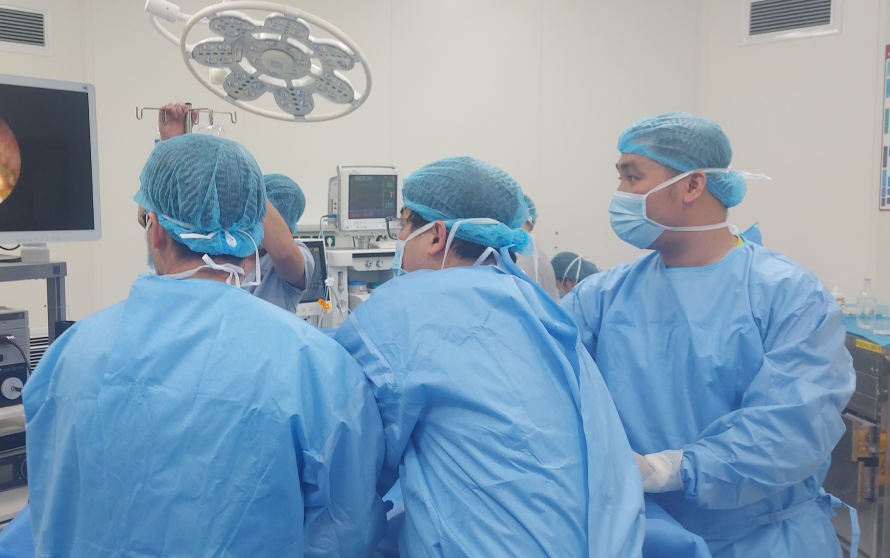
On March 11, Dr. Nguyen Dinh Lien, Head of the Department of Urology and Andrology at E Hospital (Hanoi), received a call from colleagues in Ha Nam seeking urgent medical assistance for a severe genital bleeding case.
Circumcision gone wrong
The patient, feeling self-conscious about having a long foreskin, searched online for circumcision services. He came across an advertisement by a barber and tattoo artist who claimed to offer a painless, simple circumcision procedure at home.
After the procedure, however, the bleeding wouldn’t stop. Panicked, the man was rushed to the hospital.
Dr. Lien guided his colleagues online to perform emergency suturing to stop the bleeding and repair the damage. He warned that such procedures, when not done properly, can lead to scarring and complications if not closely monitored.
The rise of unlicensed circumcision services
Dr. Lien noted an alarming increase in illegal circumcision services performed by unqualified individuals, including barbers, spa workers, and tattoo artists. These individuals advertise quick, painless procedures but lack any formal medical training.
Previously, doctors encountered a similar case where a patient hired a tattoo artist from social media for at-home circumcision. The tattooist attempted to seal the wound with metal clips, but the clips came undone, causing excessive bleeding. The tattooist then stitched the wound hastily before fleeing, leaving the patient in shock and distress.
Circumcision is a minor surgical procedure that removes excess foreskin from the penis. It is performed for both medical and hygiene reasons.
Common indications for circumcision include:
High risk of sexually transmitted infections (STIs)
Phimosis (tight foreskin that cannot be retracted)
Long foreskin that causes hygiene issues
Recurrent balanitis (inflammation of the glans penis)
According to Circular 50/2014/TT-BYT issued by the Ministry of Health, circumcision is classified as a Level 3 surgical procedure, which means it must be performed in a hospital specializing in urology or andrology.
Only foreskin dilation (nonsurgical procedure) may be performed in licensed clinics, and home procedures are strictly prohibited.
Dr. Lien’s advice: "When facing health issues, people should seek care at reputable medical facilities rather than self-medicating or turning to unqualified individuals. Home treatments by non-medical personnel pose serious risks."
Phuong Thuy